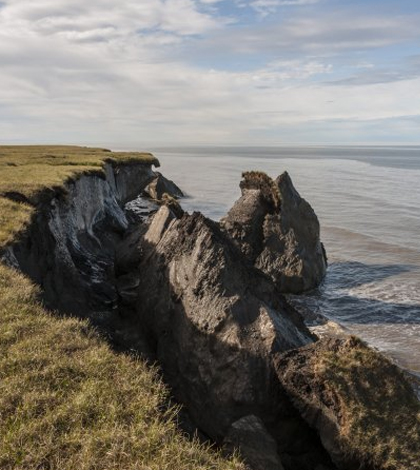Modeling Effort Finds Future With Arctic Ocean Ice Drop

Researchers at the University of Colorado, Boulder are looking in to what impacts Arctic ice loss will have. (Credit: Katy Barnhart)
Drops in the extent of ice in the Arctic Ocean is a foregone conclusion of climate change predictions, but few efforts have taken a look at what effects the ice loss will have. One investigation, led by researchers at the University of Colorado, Boulder, is shedding some light on what impacts there may be.
Using the Community Earth System Model, backed by the National Center for Atmospheric Research, the UC-Boulder scientists developed models to forecast drops in Arctic Ocean ice and the effects the losses might have. Their results point to a future with much less ice than there is now and more days where there is open ocean water, finding that 2050 will likely feature about 60 days with open Arctic waters, on average.
Beyond those open Arctic Ocean areas, scientists found that many sites will probably see around 100 days without ice, affecting things like weather patterns, coastal erosion rates and seafaring routes through the area. Data included in the analysis covered climate projections from 1850 to 2100.
Top image: Researchers at the University of Colorado, Boulder are looking in to what impacts Arctic ice loss will have. (Credit: Katy Barnhart)




0 comments